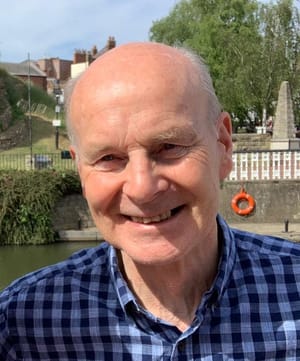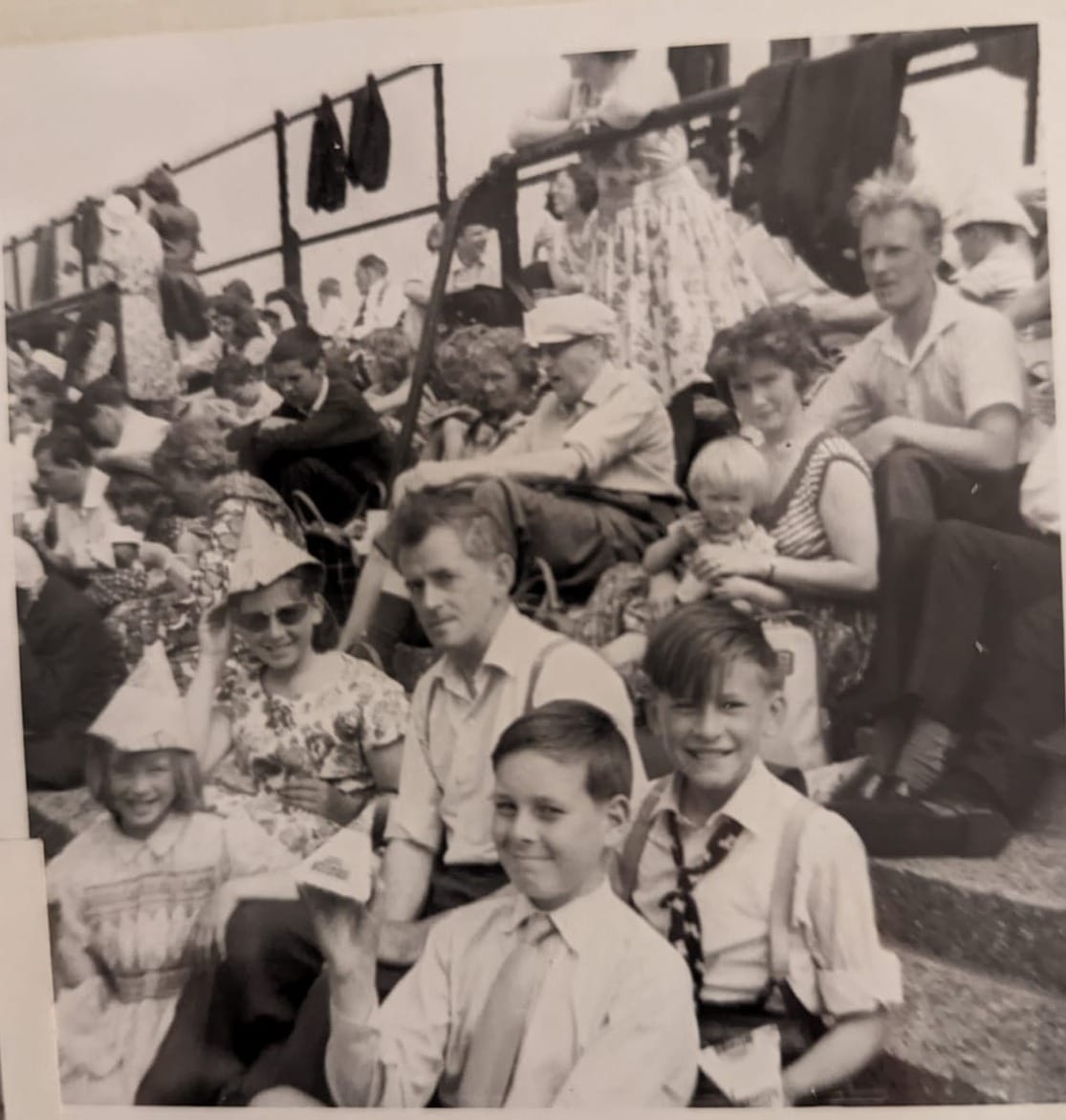I am adverse to signing up for "Newsletters", but since this particular story continues to pop up on Google news for MONTHS under "Jehovah", I thought I would share it with everyone. People must be clicking on it. :
JT: Jim, tell us about your background and how you became a JW?
JF: Hull has been my home since my birth 72 years ago. When I was five, my parents embraced Jehovah’s Witnesses’ beliefs, leading me to adopt their strict lifestyle. I dedicated my life to following the principles and practices of this faith – every twist and turn. I became part of a bunch of lovely albeit misled sheep.
My school years were affected by a sense of being different. I couldn’t participate in birthday celebrations; I couldn’t make Father’s or Mother’s Day cards; I couldn’t stand up or sing when the national anthem was played.
I was often exercised thinking up plausible-sounding excuses for not attending any parties, after-school clubs, and so on – especially on meeting nights. JWs view these activities as ‘worldly’ or ‘unnecessary association with the world’.
How else was your life characterised as a JW?
In my mid-teens (during the 1960s), I was baptised as a JW. Back then it was the norm for all JW school-leavers to start ‘pioneering’ – that is, qualifying to become an unpaid preacher, devoting some 1,200 hours per year (23 hours per week) to house-to-house proselytising.
I adhered to a hyper-busy pioneer schedule for the next 30 years, woven around my low-income, part-time, self-employed work. I married a wonderful JW girl, and shortly thereafter in 1974 (aged 23), I was appointed as an elder. I served in this role for the next 42 years.
I held various responsibilities during that time. I supervised local preaching work; organised ship-visiting at the Port of Hull for two decades; led a Chinese group and congregation; spoke at some large conventions; and served on several three-man judicial committees (convened when JWs violate the rules).
Given this busy ‘theocratic routine’, I had limited personal time to thoroughly explore the Scriptures within their proper context.
What led you to leave the religion?
Certain issues nagged at me over the years, not least the draconian policy of extreme shunning. This involves friends and family completely ignoring, as if dead, anyone who has been disfellowshipped (expelled) from a JW congregation.

Every member of a congregation is duty-bound to report to the elders anyone who expresses criticism of the Watchtower organisation (which oversees all matters of JW belief and practice), or who departs from its behavioural policies.
Other issues that concerned me included the Watchtower’s refusal to disclose databases containing thousands of names of men accused of child sexual abuse; the distorted translations used in the New World Translation of the Bible; the numerous failed predictions concerning the date of Armageddon; and the counsel to avoid higher education at university.
Another concerning feature of JW theology is their teaching that only 144,000 JWs had the hope of reaching heaven, while all other JWs, as ‘friends of God’, must anticipate working obediently for over 1000 years towards their salvation on a paradise Earth in order to qualify as children of God.
The Watchtower also continues to advocate rigid abstention from blood transfusions (albeit abstrusely allowing blood fractions to be transfused).
All these issues, along with constant flip-flops in teaching, I shelved in a state of ‘cognitive immunisation’, thinking that they must surely be cases of the ‘light getting brighter’ for the righteous as time goes by (Proverbs 4:18). In other words, official JW teaching has been understood to evolve and become more ‘enlightened’ only as time goes by.
But in 2012, everything changed for me. On my bookshelf, I had a collection of various Bible translations that I occasionally referred to for comparison.
One day I decided to read Romans 1–8. I was startled to grasp the reality of God’s grace in Christ – how it was shown to sinners who could become the children of God through no merit of their own, but rather through faith alone. I also read the epistle of 1 John. The implications of chapter 4:15-17 took my breath away.
A short time later, on a grey autumn day, I was praying as I walked alone down an almost-deserted side street near my home, when Christ made his awesome presence known to me. Walking down that street, I was struck by the words of John 19:30 like never before – as if they had been written specially for me: It is finished. It is finished, Jim.
With tears of repentance and joy streaming down my face, I turned to Jesus Christ and surrendered my life to the Lord. I knew Jesus loved me unconditionally and had saved me!
I came to this realisation not by investigating the errors of the Watchtower organisation through different websites and ex-JW material – helpful though they are – but by understanding who Christ is, and by finding a new identity in him.
As a JW, I had known about God as a sovereign Creator, but I never knew him as my beloved Abba Father. I had known Jesus as a role model, but not as my personal Saviour. And as for the Holy Spirit – JWs never discuss or preach about him indwelling believers, but now I knew it myself; I experienced it myself.
 Jim (front centre) aged 11, attending the eight-day International Assembly of Jehovah's Witnesses at Twickenham Stadium in 1963. Some 50,000 were in attendance.
Jim (front centre) aged 11, attending the eight-day International Assembly of Jehovah's Witnesses at Twickenham Stadium in 1963. Some 50,000 were in attendance.What challenges are involved in leaving the JWs?
Leaving certainly requires courage. It is not like a member of, say, a Roman Catholic church transferring to a Methodist congregation. JWs see themselves as following the only true and biblical organisation; ‘God’s channel’, or as they express it, to be a JW is to be ‘in the Truth’. In their eyes, leaving the organisation is tantamount to denying Jehovah God and rejecting any chance of everlasting life.
The Governing Body (which oversees the world’s 8 million JWs) is currently comprised of nine men in New York. JWs consider them to be the ‘faithful and discreet slave’ of Matthew 24:45 – a role Jesus appointed them to in the year 1919 (or so they claim).
Given this centralised, ‘divinely mandated’ authority structure, independent or critical thinking among lay JWs is discouraged. Reading religious material outside of approved JW publications is off-limits.
Watchtower literature (such as the magazines you see displayed on the town centre carts) often asserts that all other religions are controlled by Satan as part of ‘Babylon the Great’, spoken of in Revelation 17. This information control creates an ‘ignorance bubble’ among JWs.
Anyone suspected of deviation from official teachings can expect to be contacted by the elders for questioning, usually followed by the convening of a judicial committee. The typical result is an announcement to the entire congregation that the named individual is ‘no longer one of Jehovah’s Witnesses’.
After this announcement, everyone within the organisation, including family members, is expected to shun the person as having died. They are not to be spoken to, even via text message. This can lead to profound feelings of isolation, guilt, loss of identity, a spiritual void, lack of secular skills, financial challenges, and even suicide.
Each individual’s experience is unique, and not all ex-Jehovah’s Witnesses will encounter all of these challenges. However, JWs having second thoughts would be well advised to make a start by building a circle of new friends who can support them after they leave.
How is a Christian church meeting different from a Kingdom Hall meeting?
Every Kingdom Hall around the world follows the same scheme of Watchtower-published teaching material at their lengthy, twice-weekly meetings. Meetings are often repetitive and shallow; they are scripted echo chambers of the Governing Body’s approved program of information and film clips.
Bible education (primarily through the New World Translation) is emphasised, but it is always presented with a focus on indoctrination according to the Watchtower’s perspective. One must conform to the prevailing doctrinal beliefs and unity of thought, commonly referred to as ‘present light’. JWs have a unity by conformity.
Although the phrases ‘relationship with Jehovah’ and ‘imitate Jesus’ were often mentioned in a clichéd manner at their meetings, it was very rare to hear anyone refer to a ‘relationship with our Lord Jesus’, even in prayers.
The major themes set for each meeting revolved around loyalty to the organisation’s Governing Body through faithful attendance at all meetings, zealous preaching, and financial support of the movement.
For a former JW, attending a Christian church service can be a significant challenge. However, I have found Christian church meetings to be far more worshipful, with greater emphasis on singing and prayer.
Church services typically include regular communion, which contrasts with the JW Memorial Supper. This only takes place once a year, and only 0.1 per cent of all JWs partake of the bread and wine.
Christian churches also recognise and tolerate that there may be variations in secondary theological issues, but still come together to worship the Lord while adhering to essential beliefs: they have a unity within diversity.
 Jim sharing the gospel in Hull city centre.
Jim sharing the gospel in Hull city centre.How have JWs changed over the decades? How are they faring in the UK in 2023?
Here are a few examples of changes: in the late 19th century, the ‘Bible Students’ (later renamed ‘Jehovah’s Witnesses’) under Charles Taze Russell, thought that Christ’s ‘presence’ (parousia) had begun in 1874.
Moreover, according to ‘calculations’ contrived from the books of Daniel and Revelation, along with their study of the dimensions of the Great Pyramid of Giza, they predicted that 1914 would be the end of the world through Armageddon.
For example, in The Time is at Hand (published in 1889), Russell wrote that, ‘all present governments will be overthrown and dissolved… the full establishment of the Kingdom of God will be accomplished by the end of AD 1914.’ Over time, Russell and his successors posited other dates which supposedly marked the end of the age, including 1918, 1925, and 1975.
Nowadays, JWs buy time with the speculative concept of an ‘overlapping generation’ that supposedly began in 1914, and which consists of two overlapping groups of ‘anointed ones’. These time frames impose an inflated sense of urgency upon JWs to preach (although with notably diminishing zeal in recent times).
In the 1950s JWs stated that Jesus was no longer to be worshipped. Their current stance is that he is Michael the archangel – a creation of Jehovah rather than God himself. In the 1990s, greater emphasis than ever was placed on unwavering loyalty to the Governing Body. The elders were repeatedly warned to be on alert for rebellious tendencies.
Nowadays, you are more likely to see Witnesses standing silently at their literature carts than on your front doorstep with iPads or flyers to offer. The loyal core still attends their meetings and engages in preaching, but their numbers have decreased.
To seemingly conceal the decline in many countries, JW ministers no longer require members to report their individual hours and literature distribution each month, except for those who are full-time preachers, known as pioneers. Any reforms are skilfully crafted to create the illusion of a more compassionate image to the public.
Why do you think people are still drawn to become JWs?
Jehovah’s Witnesses offer a clear and structured belief system. By highlighting specific Bible texts (often taken out of context), they appear to provide ready answers to the big questions people ask. JWs are also generally kind and honest people with a strong commitment to their own community.
Some people are attracted by their unique blend of doctrines which keeps them ‘pure’ (i.e. distinct) from all other mainstream religions. However, despite efforts to adapt to the modern era by reducing their printing output and developing digital media, they are attracting increasingly fewer people.
Their heyday was in the 1970s to the 1990s. Since 1995, the rate at which Jehovah’s Witnesses were growing started to decline. In 2022, worldwide, JWs spent 1.5 billion hours preaching, yet the result was that membership declined by 0.7 per cent relative to the general population.
Given the rise of the internet, to what extent are JWs now aware of doctrinal U-turns and failed prophecies in their organisation’s history? How do they make sense of them?
We need to understand that JWs essentially hold to progressive revelation, believing that Proverbs 4:18 teaches that the righteous receive ‘new light’ as time goes by. Their logic is this: God’s servants improve over time, therefore in the past it’s natural and forgivable for there to have been mistakes, errors, and what Watchtower publications have called ‘misplaced zeal’ among JW teachers and literature. What’s more, the towering fear of disfellowshipping and losing family members simply outweighs concerns over doctrinal matters and changes.
What should evangelicals talk about with JWs?
It is essential to approach any discussion with a spirit of love and respect rather than aiming at confrontation or humiliation. For example, you might ask, ‘How long have you been associated with Jehovah’s Witnesses? What attracted you personally to the organisation?’ Their response can provide an opportunity for you to better understand their beliefs and personality.
Additionally, you might enquire, ‘Are you willing to explain your views on salvation from the Scriptures?’ One or two may respond by referring to Matthew 24:13 (‘he who endures to the end will be saved’). Be prepared to explain why this verse does not teach that we are saved because of our own endurance!
You might ask if they could comment on the words of John 5:24: ‘Most truly I say to you, whoever hears my word and believes the One who sent me has everlasting life, and he does not come into judgment but has passed over from death to life.’ Don’t forget to relate your own testimony of coming to Christ. This can have a deep impact on a sincere JW.
Is there anything that Christians can learn from JWs?
There is certainly much that can impress us about JWs. They often form tight-knit communities that emphasise the importance of supporting one another. They also insist on advocating for high moral standards. For example, avoiding activities such as smoking, gambling, premarital sex, and drug abuse.
Most noteworthy is their strong commitment to spreading their faith. Sadly, in the course of my JW preaching over six decades, only a handful of Christians I met on doorsteps ever tried to give a clear explanation of the true gospel. It has been said that JW proselytisers do more for a lie than Christians do for the truth!
Jim, you turned your back on 60 years as a JW to enter a relationship with Christ. Has it been worth it?
I do look back and wonder, were all those years wasted years? In one sense, yes, but in another sense, it has been a positive journey – from darkness to the brilliant light of Christ for all eternity.
Like the apostle Paul, I could speak of advancing in my former religion beyond many of my peers, but on balance it is nothing compared to the surpassing worth of knowing Christ Jesus my Lord, and sharing with others the true gospel concerning him.
Every day I have the opportunity and joy to ‘keep on growing in the grace and knowledge of our Lord and Saviour Jesus Christ’ (2 Peter 3:18). I continue to humbly learn many lessons, actively yielding to Christ’s leading. Now I enjoy my freedom in him!"
https://www.evangelical-times.org/i-was-a-jehovahs-witness-for-60-years-but-gave-it-up-for-christ-an-interview-with-jim-fielder/







